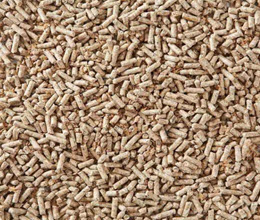 What to feed your chickens is an important aspect of enjoying your new farm experience. Chickens are omnivores and they will scarf down anything. They eat less exciting foods like fruits, grass and even vegetables plus grains and seed. The right diet for them is somewhat different, though.
What to feed your chickens is an important aspect of enjoying your new farm experience. Chickens are omnivores and they will scarf down anything. They eat less exciting foods like fruits, grass and even vegetables plus grains and seed. The right diet for them is somewhat different, though.
During the 19th century, chickens were considered backyard scavengers, hatched and were taught to look for grain in the horse stables or for bugs in the garden. Farmers also tossed out stale bread and other scraps to the chickens. During winter, they got grain and hens laid only a few eggs a week. Then chickens were bred or laying more eggs and instead of 90 eggs a year a hen started laying over 300 and with an increase in production came an increase in nutritional requirements.

Commercial hen laying pellets are designed with today’s productive hen in mind. The pellets contain the correct proportion of minerals, protein and energy and should make up the bulk of their diet. Chickens should have access to pellets all the time as they need to go to bed with full crops. It takes approximately 25 hours to create just one egg, and while the hen is sleeping she builds the egg and get the materials for making the egg from digesting food. Yes, let her eat from sunup to sundown to ensure you enjoy the best eggs possible.
The commercial feed contains great amounts of calcium, but you could add coarsely broken the oyster shell to the diet. Easiest is to put this into a rabbit feeder, it keeps it tidy, prevent waste and keep it off the ground. Your chickens will also need grit or tiny rocks in order for their gizzard to grind up food, without the grit digestion could be slowed down and the hens are much less efficient in extracting nutrients from their normal feed.
Commercial feed is really good but should still no be the only food your hens get to eat, a standard size hen will eat about a ¼ pound of pellets in a day if no other food is offered, it remain essential for your hens to have a varied diet beyond pellets and greens and dirt to scratch in are key components to keep your flock as happy as can be. Not all foods are ideal but if your chickens are getting the bulk of their diet from pellets they are less tempted to eat scrap foods, avocado is lethal to chickens and potato skins are not going to harm them.

In winter, it could be a great idea to hand cabbages inside the coop or cut pumpkin. A nice treat is hulled sunflower seeds in moderation and it is an extra bit of protein, sunflower seed, and cracked corn is also a great treat. The solid blocks of treats available commercially attract mice and chipmunks and discourage hens to move around to search for food. But great spoils can off course include pieces of crumbled stale bread, bruised tomato or yogurt.
Fresh water at all times is a must and the water bowl needs to be cleaned regularly. Give your chickens a variety of foods, fresh air and get them to exercise in a great environment and they repay you with lots of delicious eggs.